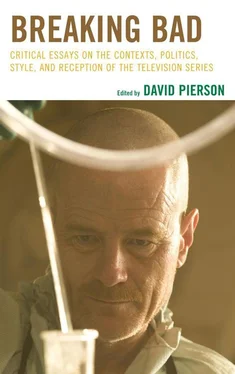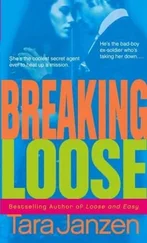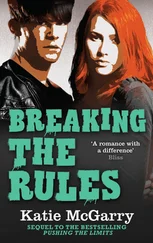CONTROL… NORMAL… REAL—CONTROLLED AND UNCONTROLLED
We have decidedly contradictory beliefs about our bodies. On the one hand, since Descartes, we regard ourselves as essentially thinking beings. Therefore, as thinking things our bodies are of secondary importance to our sense of self. After all, bodies are mutable: they grow, age, get injured, bits may be surgically removed, but it is one’s mind through which a person attains a stable sense of identity. Yet at the same time, we are anxious about our bodies. Bodies certainly seem relevant to one’s sense of identity when it comes to one’s gender, sex and race identity. And one’s state of health, well-being, and physicality are surely of central importance to one’s sense of self and one’s identity. [5] I am speaking in general terms about health and well-being, impairment and disability. How particular conditions and bodily symptoms affect particular people can vary, but I believe persuasive arguments have been made for accepting the claim that Deafness and Autism, say, are conditions that can affect a person’s body and their relationship with the able-bodied community so thoroughly that it makes sense to speak of a person’s Deaf identity or a person’s Autistic identity. Please also see Padden and Humphries chapter on deaf people, Edwards’ chapter on technology and the deaf world, and Staus’s chapter on autism as culture all in Lennard Davis’s The Disability Studies Reader , a 2010 edited collection .
So it is not too surprising that, although we may not want to define ourselves in terms of our bodies, we are nonetheless very concerned, if not anxious, about the health and well-being of our bodies.
Given the intense ambivalence we feel about our bodies, it should not be surprising that a powerful set of ideological beliefs about bodies is embraced by many in our society. Susan Wendell (1996) explains what she refers to as the “Myth of Control.” She claims that the essence of this myth is that we can have the bodies we want; if we simply work hard enough, we can avoid illness, disability and even death. Wendell points out that, because there is an element of truth to the myth, we can work to reduce risk of disease, and act cautiously to avoid many physical risks. But the myth states more than that; it states that the body can be controlled. Despite the implausibility of the idea of total control, people insist of the truth of this myth even when presented with evidence of its falseness (93-94). When people are blamed or made to feel responsible for having non-ideal bodies despite their reasonable care, when unproveable theories are generated to explain how someone could have avoided becoming ill, when people with disabilities are seen as having their psychological, moral, or spiritual failures written upon their bodies, and when every death is regarded as a defeat of human efforts, the myth of control is as work.
Wendell refers to the “full reality of bodily life.” This reality presents us with a cluster of very unpleasant but nonetheless undeniable facts. Among these facts are that we are born with fragile, vulnerable, disease-prone (perhaps even diseased) bodies. Another undeniable, yet equally unpleasant, fact is that each and every one of us is mortal. Because of this “reality of bodily life,” or, speaking more carefully, because of the unpleasantness of bodily reality, the myth of control is widespread in our culture. The key idea of this myth is that if we exert sufficient control over our bodies, if we maintain adequate perfect health and thereby stave off disease, then we could thereby defer our own death. The myth of control is absurd, of course. We are surrounded by people who become ill, have impairments, have disease, and have died—each and every one of us has certainly become ill even if only temporarily at some time during our lives, and many of these people have worked hard to protect their health. Yet the myth of control persists. And, paradoxically, with the advance of medical technology it grows stronger for medicine does not prove to us that we are mortal and that we must suffer illness, but promises us an escape from disease or the suffering caused by impairment or injury. The more medicine advances the more inexplicable disease, impairment and death becomes.
Despite the overwhelming evidence that humans are not immortal and that each of us will experience disease or impairment (unless we die very quickly while we are very healthy), the myth of control serves its ideological function very well. This myth tell us that if we work hard enough, exercise enough, eat right, take the right pills, go to the right physicians, and are very, very disciplined—in other words, do not live badly or take risks, do not make any mistakes with our body—then we will remain healthy and disease free. The reward of normalcy is, according to Wendell, to escape having a “rejected body.” In so far as we fail to control our bodies, in so far as we fail to be normal, we will be ill, diseased, abnormal and bad. It is our fear of abnormality, disease, deformity and deviancy that drives us to control our bodies and strive for normalcy.
Initially, Walter would not tell his family about his diagnosis. The terribleness of this disease, of being terminal, is too awful to discuss. The only person he does tell is Krazy-8, a young man he holds hostage in Jesse’s basement, locked to a basement ceiling support with a bicycle lock. Since Walter has determined that he must kill Krazy-8, telling him about his cancer is only revealing his terrible secret temporarily. Once Krazy-8 is dead, Walter’s secret will die with him.
Because of the complexity of his double life, and Skyler’s suspicions of his lengthy absences, Walter is ultimately unable to keep his cancer secret from his family and begrudgingly tells them of his diagnosis. He also tells them that he does not intend to get medical treatment. Alarmed by this decision, Skyler, in the episode “Gray Matter” (2/4/08), gathers the family together for an “intervention” to change Walter’s mind. Skyler starts the conversation by reassuring Walter that, though money is tight, because of the offer to pay for treatments made by his former partner Elliot and his wife Gretchen, there is no reason to not get the treatments. Hank speaks next and both agrees with Skyler that the offer of money should not be rebuffed but also adds that, though Walter was given a poor set of cards, since he wants to remain playing life’s game, he should simply make the best of it while fighting. Walter Jr. follows next and accuses his father of not fighting and being scared of the cancer treatments. Marie then argues that Walter should do what he wants to do. She claims that treatment for terminal conditions can be tough for most patients, but those people go through with it merely to make their family members happy, not because they genuinely want to. After hearing Marie, Hank chimes in that he now agrees with Marie, adding that were Walter to refuse treatment he could die on his own accord.
After hearing all their opinions and suffering the heated argument that ensues, Walter finally offers an explanation of his choice. He claims he is refusing treatment not because of the concerns for the cost, not because he is afraid of the treatment, or the thought of the treatment itself as being unpleasant, but because what he needs is to control his life. For his whole life, he has never made a choice for himself and this time, he wants to make a choice for himself. He then describes how he envisions his future if he chooses treatment: thirty to forty pills every single day, loss of his hair, days spent too tired or nauseous to move or even turn his head, a person just marking time till he dies. But worse, according to Walter, is the thought that forever after his death that he would be remembered as a sickly, weak, dying man.
Читать дальше












